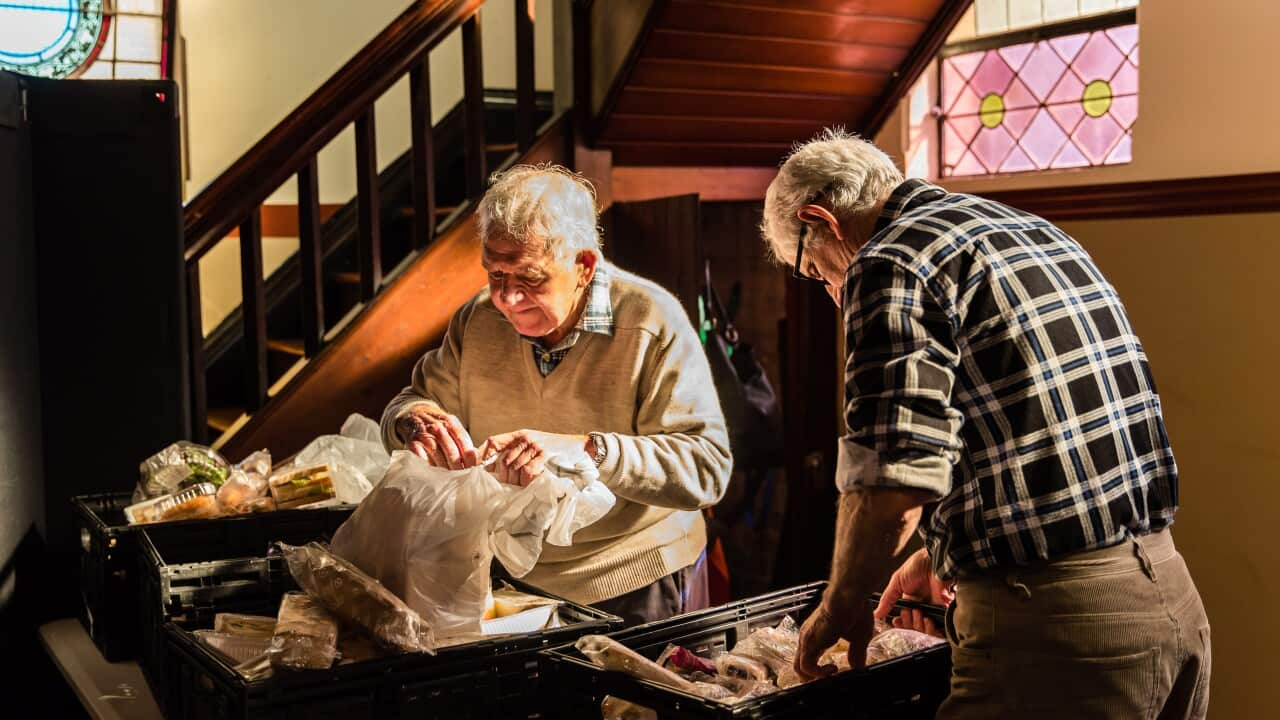The link between a good diet and good physical health is generally well known; everything from keeping our weight under control and reducing our risk of diabetes can be connected to eating fresh and healthy food.
The link between a good diet and good mental health, however, is less understood.
Professor Felice Jacka, director of the Food and Mood Centre at Deakin University, tells SBS Food, "The quality of the diet people eat has a direct link to their risk of depression.
"We see evidence from a number of clinical trials that if you take people with depression and help them to improve their diet, it has a substantive impact on their depressive symptoms, and is a highly cost-effective treatment."
TAKING CARE OF OURSELVES

How baking can improve your mental health
For many homeless people, especially those who sleep rough, getting three square meals a day is simply a luxury they cannot afford. Skipping meals is common and when food is available it's often something cheap, which often means junk food high in salt, sugar and fat.
Apart from the impacts on physical health, such as obesity and chronic illnesses, a diet high in sugar can affect .
We see evidence from a number of clinical trials that if you take people with depression and help them to improve their diet, it has a substantive impact on their depressive symptoms, and is a highly cost-effective treatment.
The UK's says that a Mediterranean-style diet, which is rich in fresh vegetables and fruit, unsaturated fats such as olive oil, complex carbohydrates, fish, nuts and legumes, can help lessen depressive symptoms. However, that is also an expensive diet and one that requires a kitchen to prepare meals.
The relationship between food, poverty and homelessness is a complex and often cyclical one.
"Poorer physical health, and living in poverty or deprived communities, have been found to be associated with poorer mental health and wellbeing," the Mental Health Foundation states. "Both these inequality factors have also been shown to have a complex relationship with poor nutrition."
Mental health is intrinsically connected to homelessness, either as a cause or a side effect. According to the , about 20 per cent of the Australian population has a mental illness, but an estimated 75 per cent of homeless people have a mental illness. This makes the need for sufficient support and treatment, including a healthy diet, vital.
SUPPORTING BRAIN HEALTH

7 ways to eat to boost your brainpower, without taking supplements
Professor Jacka says that studies from across the world have shown that people with healthier diets are less likely to experience depression.
"Research also shows that people who eat more unhealthy and junk foods are at increased risk of depression. This seems to also be the case in adolescents. Importantly, these relationships are independent of one another," Professor Jacka explains.
"Lack of nutritious food seems to be a problem even when junk food intake is low, while junk and processed foods seem to be problematic even in those who also eat vegetables, legumes and other nutrient-dense foods. We've documented these relationships in adolescents, adults and older adults."
Ronni Kahn, founder and chief executive of food rescue organisation OzHarvest, says there is "still much work to be done" to make sure this message filters through to families in need.
"OzHarvest's was developed to help provide nutrition education and cooking skills to recipients of food relief via the charities that receive our food, in order to facilitate that connection between a healthy diet and a healthy mind," she says.
"There are often some simple things people could be doing to improve their nutrition, for example, swapping white bread for wholemeal or multigrain and sugary drinks for water is a good place to start, and we try and make sure that we link how important a nutritious diet is to a healthy lifestyle."
premieres over three consecutive nights – June 9, 10 and 11 – on SBS at 8:30pm. The show will be available at SBS On Demand after the broadcast, including in subtitled Simplified and .
Join the conversation #FilthyRichHomeless








